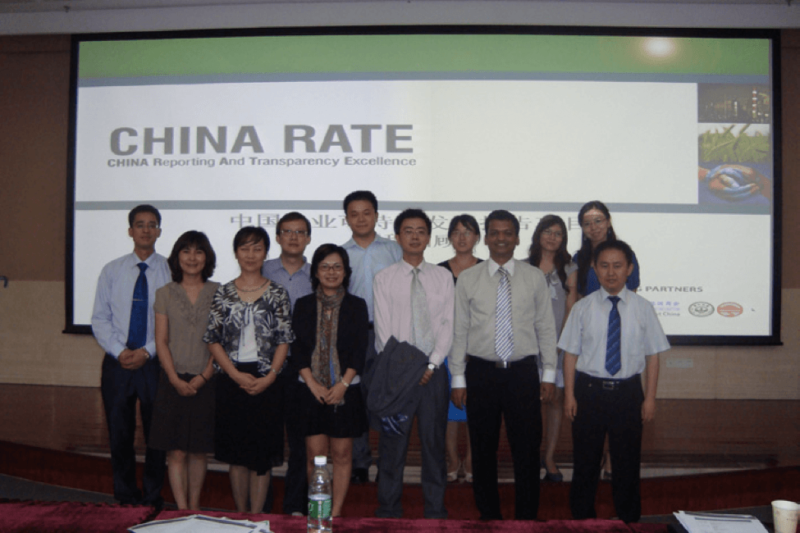Industrialization has the potential to help achieve poverty eradication, improve gender equality and labour standards and provide greater access to education and healthcare. At the same time, industrial processes play a major role in the degradation of the global environment. Industries in developing countries have significant potential to reduce the material, energy, and pollution per unit of industrial output.
The project’s aim was to implement a sustainable industrial development programme through the promotion of resource efficiency and waste management practices benchmarked on international standards. The envisaged outcome of the project was to help the supply chain factories of footwear, apparel and accessories (FAA) sectors in the developing countries of Asia (Bangladesh, Cambodia, Indonesia and China) to reduce their energy, water, waste and CO2 emission by 25% by 2015, compared to the 2011 baseline, and to contribute to a green economy and sustainable industrial development.
Over the course of the project, more than 500 attendees were trained and 35 factories participated from the target countries. The project resulted in total savings of USD 4 million in the first year with an average payback period of 2.5 years, 62,000 MWh per annum of energy saved (equivalent to 44,500 tons per annum of carbon dioxide emissions), nearly 633,000 m3 per annum of water saved and approximately 660 tonnes per annum of waste reduced.
China is one of the world’s largest emitters of greenhouse gases (GHGs) and a significant contributor to global warming, owing to the rapid growth of the industrial sector. Energy efficiency measures can help in reducing air pollution and generate economic benefits—thus, making it attractive to investors and energy consumers. Creating a better basis for increasing energy efficiency would help the Chinese government meet its 2020 commitment of advancing a more environment-friendly economy.
ASSIST, together with TUV Nord and DEG, developed the ACE initiative with the aim to contribute to advancing a carbon-neutral economy. The project targeted energy-intensive enterprises in four cities in China – namely Shanghai, Tianjin, Guangzhou, and Chongqing. These four locations are among the top most industrialized cities in the country, where resource-intensive industries are concentrated.
To achieve this, the key interventions include 1) conducting a multistakeholder forum; 2) creating an awareness session to highlight the alarming levels of carbon emissions in China and the practices that companies can adopt to curb this amount; 3) developing an online assessment tool for carbon footprint calculation; 4) developing training materials; 5) conducting a Train-the-Trainer workshop; 6) identifying at least 5 carbon-intensive companies and providing technical assistance to become a Carbon Neutral Company; 7) developing a case study report and; 8) conducting a best practices forum.

China is among the top three countries in the world with regards to the size of its economy and success of its business. When it comes to the quality of services and products, Chinese organizations are considered world class. However, up to date one aspect of conducting business has not reached wide popularity, namely corporate sustainability reporting. The project China RATE sought to initiate the spread of corporate social and environmental reporting amongst manufacturing and service industries in China. It hoped to raise awareness and optimize the reporting procedures of Chinese companies to make their businesses more sustainable. By training organizations on issues such as transparency, environmental responsibility and international GRI guidelines, it aimed to enable them to create a better long-term approach which would lead to greater success and profits.
ASSIST, in partnership with TUV Rheinland, conducted awareness raising sessions with company CEOs, trained local companies on GRI guidelines and provided technical consultancy to selected companies on GRI implementation. The awareness raising activities targeted top decision makers to ensure company commitment to corporate sustainability reporting. Fifty participants from different companies in China attended a series of training on GRI standards, international and local standards as well as on local carbon strategies. These trainings built the local capacity of these participants to become trainers themselves and spread their knowledge among industry partners. Finally, the project gave five companies intensive consultancy on GRI guidelines and helped them with their sustainability reporting.
China increased its economic power through a staggering expansion of heavy industry and urbanization in the past decade. A key city that experienced open industrial and commercial growth is Kunshan City, which aims to continue its industrial development and at the same time conserve its environment. AIM is a Private Sector Partnership (PSP) project jointly implemented by Vossloh, TÜV NORD, and ASSIST, and aims to improve the quality and environmental management systems in Vossloh’s supply chain in the Kunhan Industrial Estate in China thus, contributing to a more sustainable industrial system in China.
The AIM project was implemented in three key phases: 1. conduction of four one-day ISO 9001 and ISO 14001 awareness sessions; 2. technical assistance to five companies helping them align their practices with the above ISO standards; and 3. processing of the certification and the development of e-tools to assist this process. Three training of trainers (ToT) sessions were also conducted to qualify 60 local trainers and create a local pool of trainers on these international standards. A Body of Knowledge (BoK) document was also developed, benchmarking ISO 9001 and ISO 14001 standards in Chinese and English languages to build the local capacity.
The project raised awareness on these quality and environmental standards among companies in Kunshan City. E-newsletter and e-learning kits were developed and distributed along with the organisation of drawing and slogan writing competitions to educate companies and increase interest on the importance of Quality and Environmental Management Systems (QEMS).


